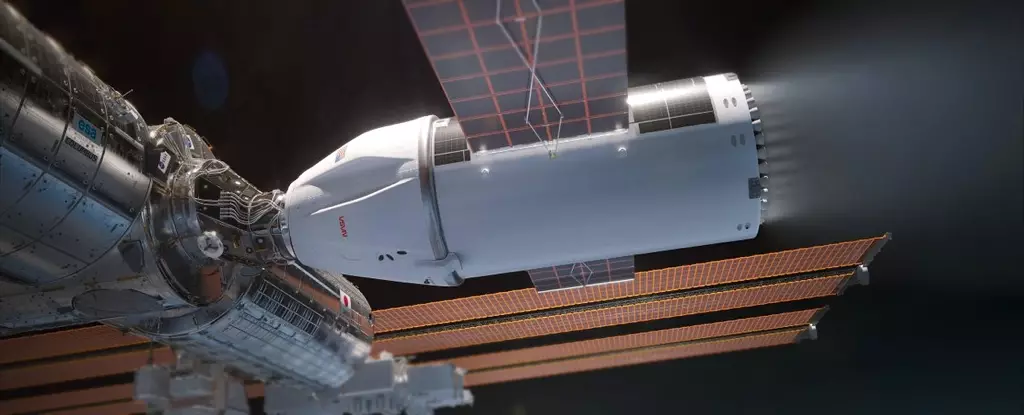The International Space Station has been orbiting Earth for the past 23 years, serving as a research facility and home for astronauts from around the world. However, its days are now numbered, as NASA has announced plans to decommission the ISS by 2031. In June, NASA revealed that it would be collaborating with Elon Musk’s SpaceX in this endeavor, with a whopping budget of up to $843 million allocated for the project.
SpaceX’s contribution to decommissioning the ISS involves the development of a superpowered, extra-large Dragon spaceship. This specialized Dragon will be equipped with 46 Draco engines, providing it with four times the power of a regular Dragon ship. The goal is to push the ISS out of orbit and into a controlled descent towards a remote ocean location, ensuring a safe and precise termination of the space station.
According to Sarah Walker, SpaceX’s director of Dragon mission management, one of the most challenging aspects of the mission will be the final burn that propels the ISS on its final descent. This burn must be powerful enough to navigate the entire space station while resisting atmospheric drag and other forces that could alter its trajectory. The ISS’s final destination is yet to be determined, but NASA aims for a remote area in the ocean, such as the South Pacific, to minimize any risks of impact on land.
As SpaceX prepares to play a crucial role in the decommissioning of the ISS, Sarah Walker expresses her gratitude for the opportunity to be part of this historic mission. SpaceX has a long history of involvement with the ISS, being the first commercial vehicle to dock with the station in 2012. Now, it is set to bring the ISS full circle by assisting in its final descent and termination.
While the ISS may be nearing its end, NASA and its Russian counterpart, Roscosmos, plan to continue using the station until 2030. After that, both agencies will embark on new endeavors, transitioning to new space stations and exploring partnerships with private space station operators. NASA envisions a future where it is one of many customers utilizing private space stations for research and exploration beyond Earth’s orbit.
The decommissioning of the International Space Station marks the end of an era in space exploration. With SpaceX’s innovative technologies and collaborative efforts with NASA, the future of space research and exploration is filled with exciting possibilities. From the controlled descent of the ISS to the transition to new space stations, the partnership between NASA and SpaceX paves the way for new discoveries and advancements in space exploration.


Leave a Reply